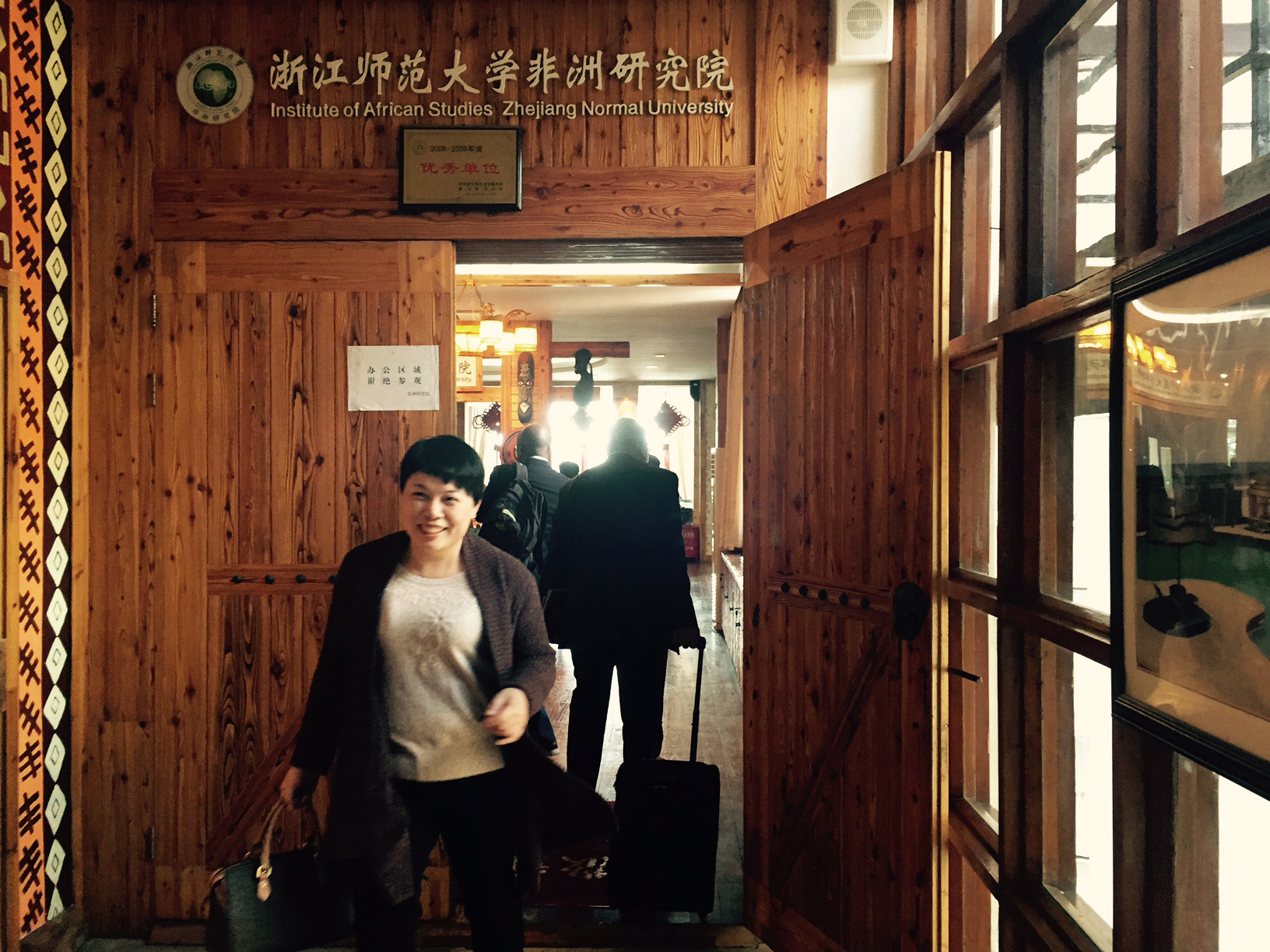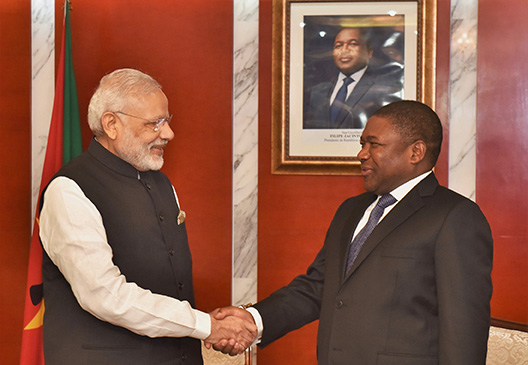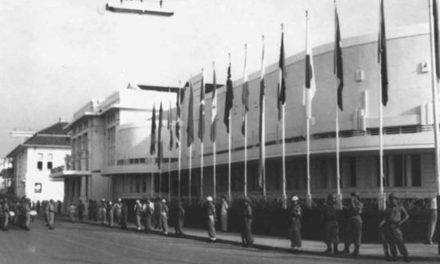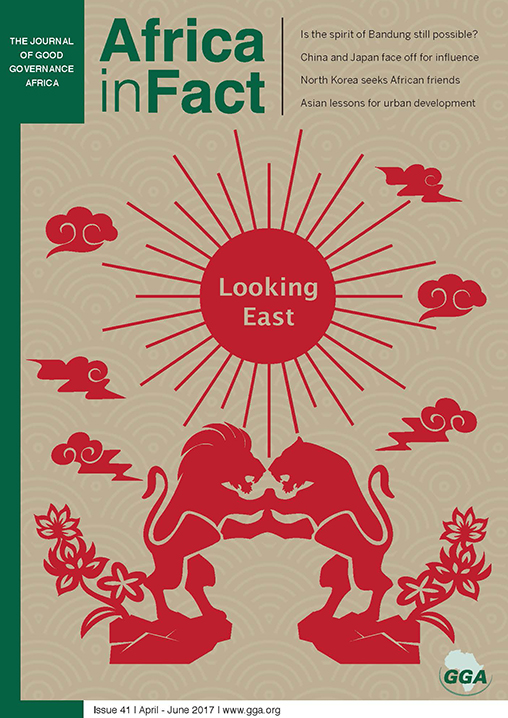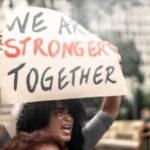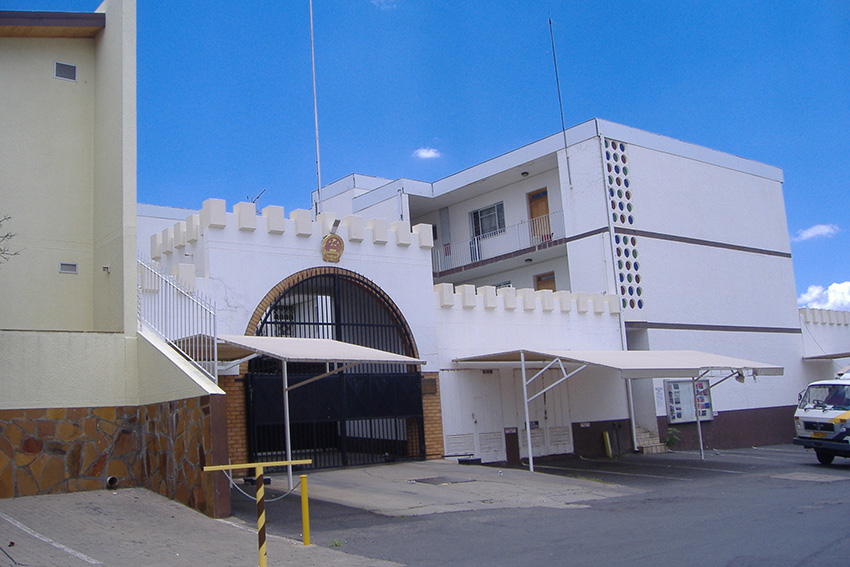
The Chinese Embassy in Windhoek. Image Wikimedia Commons
Despite concerns around corruption and looting of environmental resources, Namibia is determined to forge stronger bonds with Eastern nations, especially China and North Korea
Namibia has preached non-alignment and maintained a semblance of independence in foreign affairs, but it has become clear that some of its foreign friends – especially those in the East – have come to enjoy greater prominence in recent times. Now the country is apparently seeking to locate its foreign relations mainly in the realm of economic diplomacy.
China and India have both officially supported Namibia’s development since it gained independence on 21 March 1990. Their position as legacy friends offering considerable economic and geo-political benefits has expanded significantly since then. And other Asian nations such as Malaysia, Indonesia and Singapore – long only peripheral in significance – have apparently risen in the country’s estimation within the context of South-South cooperation.
Namibia’s new eastwards gaze is hardly surprising. China, India and North Korea were arguably the ruling South West African People’s Organisation Party’s (SWAPO Party) main supporters during the long years of the struggle for independence from apartheid South Africa. China played a pivotal support role during the armed struggle from the late 1960s to 1989, when hostilities officially ended. It primarily provided arms and military training – along with the Soviets – to SWAPO Party’s armed wing, the People’s Liberation Army of Namibia.
India was a staunch supporter of the Namibian independence cause through the Non-Aligned Movement; SWAPO Party opened its first official embassy in New Delhi in 1986. North Korea played a similar, if smaller, role, but has currently been relegated to undercover friendship status because of United Nations (UN) sanctions against it. Its shadowy presence is inescapable though.
Namibia’s policy move eastwards, and especially its closer relationship with China since 2000, has been met with palpable alarm in some quarters. The United States’ (US) diplomatic cables leaked by Wikileaks in 2010 aptly illustrated the extent of Western unease with the growing Chinese presence and influence in Namibia. In a string of cables between 2007 and 2009, Denise Mathieu, the then US ambassador to Namibia, appeared to be constantly updating the state department in Washington on the fast-growing and deepening relations between the two governments, as well as between SWAPO Party and the Chinese Communist Party (CCP). These relations were evidenced by an increase in bilateral trade,economic agreements and state-level transactions, as well as growing numbers of Chinese nationals and mostly state-owned companies striking deals and establishing ventures in the country.
Mathieu accurately assessed the situation in one of her last cables to Washington: “Given the close historical ties between SWAPO and Beijing, and the significant concrete benefits they continue to produce for the government of Namibia, the growing public resentment is unlikely to translate into policy changes in the near term.”
Since 2010, Sino-Namibian government-to-government interactions and official visits have increased. Chinese involvement and investment in the Namibian economy have escalated, particularly in extractive industries. The number of Chinese nationals in Namibia also appears to have ballooned. Although this is hard to verify, it is estimated that almost four percent of Namibia’s residents are Chinese nationals; and they aren’t viewed in a positive light.
Negative public sentiment regarding the Chinese has deepened on the backs of reports of ill-treatment of Namibian workers by Chinese bosses, and a stream of high-profile corruption cases and incidents involving Chinese nationals and Namibian political elites and public officials – all the way up to President Hage Geingob. There are perceptions of pervasive tax evasion and fraud by Chinese businesses and large scale illicit financial flows to China. These perceptions appear to have been primarily responsible for the introduction of strict money transfer limits by the Bank of Namibia in mid-2016.
Alleged involvement in natural resources-related crimes – including rhino and elephant poaching; endangered wildlife smuggling; environmental destruction; and illegal logging – has also fuelled negative perceptions of China’s presence in Namibia. A harsh anti-Chinese undertone has entered Namibia’s public discourse.
The Namibian government has sought to downplay this, but it is evident that some tension has crept into Sino-Namibian relations, even as they continue to deepen. An Institute for Public Policy Research (IPPR) briefing paper produced for a Foreign Policy Review Conference in July 2016 – convened by the Ministry of International Relations and Cooperation (MIRCO) – sums up the situation neatly: “On paper economic diplomacy reads like an obvious means of securing investment. However, complexities arise which can have a detrimental effect on the developing country, an example of which can be seen in Namibia’s relationship with China.”
“There are signs of some tension between the two governments already,” Graham Hopwood, IPPR director, told Africa in Fact. “The Chinese embassy is irritated by criticisms from civil society regarding Chinese citizens’ role in wildlife poaching and has urged officials to step in and restrain certain environmental NGOs. At the same time, government has clearly realised that it can no longer tolerate Chinese businessmen who are allegedly evading tax on an industrial scale, especially as government coffers are desperately in need of increased revenue.”
He added that Chinese state businesses were so intertwined with government and its contracting procedures that a complete divorce was unthinkable. “Chinese companies are now involved in many major national infrastructure projects, while the Chinese-owned Husab uranium mine promises to be a major earner for the economy. Therefore a serious fall-out [sic] between China and Namibia is not on the cards. However, government may now apply an increased level of scepticism when it comes to Chinese dealmaking.”
The Chinese can offer significant economic and development support and SWAPO Party leaders have often expressed admiration for its centrally planned and state-driven development success. Namibian leaders also have an affinity for the Singaporean model; Singapore’s government consultants are currently advising the Namibian government on how to improve its attractiveness as an investment destination in an effort to replicate some elements of Singapore’s success story. The project, which ends in 2018, aims to generate significant improvement for Namibia spot on the World Bank’s “Ease of Doing Business” ranking by 2020.
Namibia has also made moves to deepen its ties with India in a number of development-related areas, such as setting up training facilities in sophisticated technology. During President Pranab Mukherjee’s official state visit to Namibia in June 2016, he promised that India would provide “any assistance” to Namibia to help achieve its developmental objectives. Just over a month later at MIRCO’s Foreign Policy Review Conference in Windhoek, Indian international trade and treaty negotiators and foreign policy experts were conspicuous by their numbers; and led many of the high-level discussions on Namibia’s future foreign policy.
Shortly before this, in March 2016, Namibia’s long-standing but hush-hush relations with North Korea came under international scrutiny. The country faced rebuke from the UN Security Council over perceived violations of UN weapons sanctions imposed on North Korea. It emerged that the North Koreans were building and equipping munitions and arms manufacturing facilities for the Namibian defence ministry around the country. Around the time the Indian president was in Namibia Netumbo Nandi-Ndaitwah, MIRCO minister and Namibia’s deputy prime minister, flew to Pyongyang to personally inform Ri Yong-ho, North Korea’s foreign minister, that Namibia was obliged to break off relations.
By the beginning of February 2017, most North Koreans had left Namibia, but there were indications that some were still active at Namibian defence force facilities. Nor are the Namibian authorities in a hurry to sever ties. It seems they want to let the situation die down, before quietly letting the North Koreans back in. The North Koreans, for their part, have been operating under the radar on various sensitive infrastructure and national security projects in Namibia for most of the past two decades.
Namibia’s shady relations with North Korea and its hard focus on China are destabilising its relations in the international sphere. Andre du Pisani, a prominent Namibian political commentator, cautioned in 2014 that “While relations with China do indeed offer benefits to Namibia, such relations should not be entered into and sustained if they undermine potentially productive and more egalitarian relations with India, the EU and the US.”
Namibia’s new foreign policy framework is set to be unveiled in the first half of 2017, following last year’s Foreign Policy Review Conference. Indications are that economic diplomacy will occupy a central position in the country’s future engagements with the world. At a general staff meeting in early February 2017, Nandi-Ndaitwah said: “In our strategic plan, the promotion of trade and investment is a major objective. Our performance agreement also points to the importance of economic diplomacy.”
Given the shifting of geo-political and economic power in the world today, it is clear that Namibia’s gaze will focus firmly eastwards.



